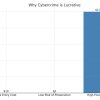A 37-year-old Nigerian man, Abiola Kayode, has been extradited from Ghana to the United States to face charges of conspiracy to commit wire fraud. This comes after a lengthy investigation into fraudulent activities linked to a business email compromise (BEC) scheme that defrauded victims of over $6 million.
Kayode’s indictment, filed in August 2019 in Omaha, Nebraska, followed extensive investigations by US law enforcement. He was arrested in Ghana in April 2023 after the US submitted a formal extradition request. Ghanaian authorities approved the request, and Kayode was handed over to FBI agents for transport to Nebraska.
On December 11, 2024, Kayode made his initial appearance in federal court before Magistrate Judge Michael D. Nelson.
According to the US Attorney’s Office for the District of Nebraska, Kayode was part of a sophisticated BEC scheme operating from January 2015 to September 2016. The scheme involved fraudsters impersonating executives of targeted companies through spoofed emails.
These fraudulent emails directed company employees to authorize wire transfers, which were sent to accounts controlled by Kayode and his co-conspirators. The investigation revealed that many of these accounts belonged to victims of unrelated internet romance scams, further complicating the scheme.
Some of Kayode’s co-conspirators have already been convicted and sentenced. One notable accomplice, Adewale Aniyeloye, was sentenced in February 2019 to 96 months in prison and ordered to pay $1.57 million in restitution.
The US Attorney’s Office emphasized its commitment to bringing all individuals involved in such schemes to justice, highlighting the devastating financial and emotional impact on victims.
Kayode’s case underscores the growing international cooperation in combating cybercrime, as well as the determination of US law enforcement to prosecute offenders regardless of their location.
The extradition of Abiola Kayode marks a significant step in the fight against cyber fraud. Authorities continue to urge businesses and individuals to remain vigilant against BEC scams and report any suspicious activity promptly.

















































































































